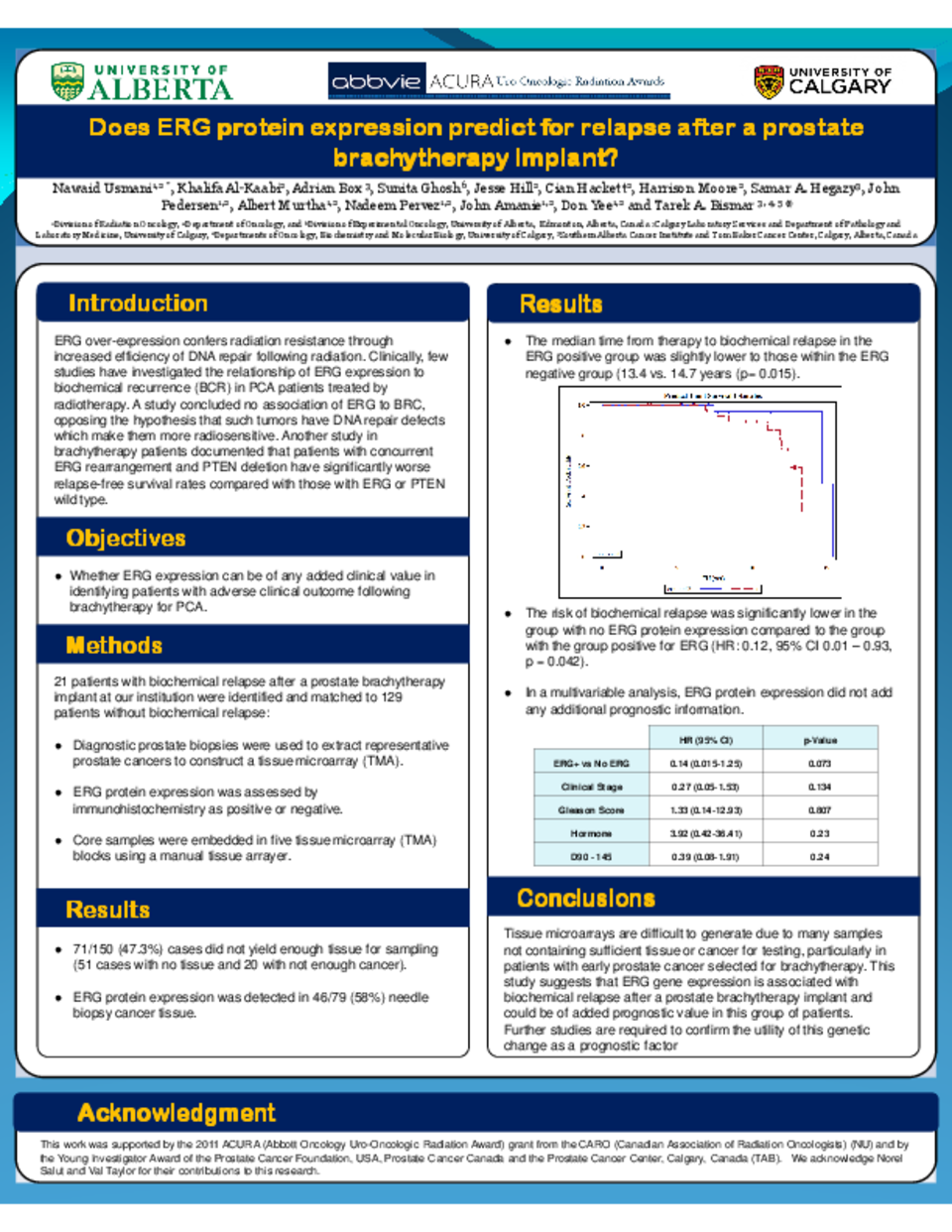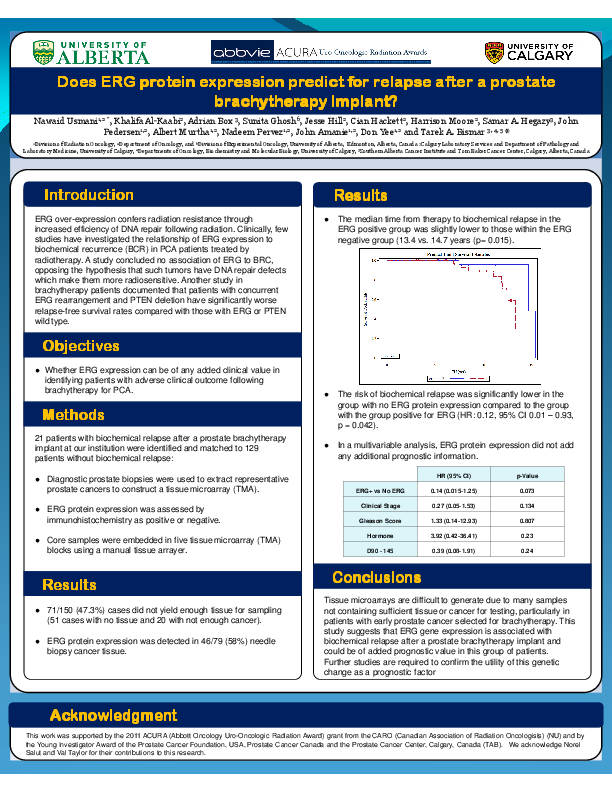Abstract
Purpose
The ERG gene rearrangement is the most common genomic aberration in prostate cancer with potential prognostic and therapeutic value. ERG protein expression has been shown to reflect ERG genomic rearrangements. This retrospective analysis of 150 prostate cancer patients treated with prostate brachytherapy investigated if ERG expression had any prognostic value to predict for biochemical relapse.
Methods
21 patients with biochemical relapse after a prostate brachytherapy implant at our institution were identified and matched to 129 patients without biochemical relapse. Diagnostic prostate biopsies for this cohort were used to extract representative prostate cancers for these patients to construct a tissue microarray (TMA). ERG protein expression was assessed by immunohistochemistry as positive or negative. Patient demographics, tumor characteristics and clinical outcomes were analyzed with univariate and multivariate analyses of risk of biochemical relapse studied by Cox proportional hazard models and survival estimated by the Kaplan-Meier method.
Results
Of the 150 cases identified, 71 cases did not have sufficient tissue (n= 51) or cancer (n=20) in the prostate biopsies used in the TMA for ERG testing. ERG protein expression was found in 46 of 79 (58%) prostate cancers. With a median follow-up of 8.8 years, 9 patients (20%) of the 46 with ERG expression developed biochemical relapse. The median time to relapse was 13.4 years compared to the group who lacked protein expression which was 14.7 years (log rank p value = 0.015). This was reflected in the risk of relapse being significantly lower in the group with no ERG protein expression compared to the group with expression of the protein (hazard ratio 0.12, 95% CI 0.01 – 0.93, p = 0.042). In a multivariable analysis, gene expression did not provide additional prognostic information when adjusted for clinical stage, pretreatment PSA, Gleason score, hormonal status or quality of implant on post-implant dosimetry (i.e. D90 > 145 Gy).
Conclusions
Tissue microarrays are difficult to generate from diagnostic prostate biopsies due to many samples not containing sufficient tissue or cancer for testing, particularly in patients with early prostate cancer selected for brachytherapy. This small retrospective study suggests that ERG gene expression is associated with biochemical relapse after a prostate brachytherapy and could be of added prognostic value in this group of patients.





